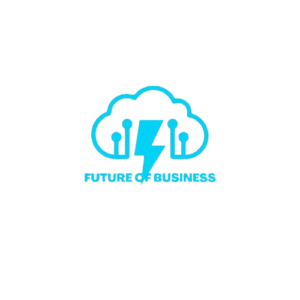High ticket sales refer to transactions involving products or services that come with a high price point, often in the thousands or even tens of thousands of dollars. Unlike everyday sales that focus on volume, high ticket sales emphasize value, trust, and relationship-building. For example, luxury cars, real estate investments, premium coaching programs, and advanced software solutions are all considered high ticket items. These are not impulse purchases, but carefully considered decisions where buyers evaluate quality, reputation, and long-term benefits. Beginners should understand that high ticket selling requires a different mindset compared to traditional sales. Instead of quick pitches, it revolves around establishing credibility and creating an emotional connection with clients. This high ticket sales for beginners guide provides a structured path to understanding how these transactions work and how new sales professionals can find their footing in this lucrative area.
Why Beginners Should Consider High Ticket Sales
Many people hesitate to start high ticket sales because the numbers feel intimidating, but the potential rewards outweigh the fear. A single closed deal can be equivalent to months of income from smaller sales roles. Beginners who step into this area often discover that working with fewer clients but larger contracts reduces stress and allows more time for quality service. High ticket sales also open doors to industries that are expanding rapidly, such as digital marketing, consulting, health services, and tech solutions. For someone starting out, mastering these skills can provide long-term stability and personal growth. Unlike lower-value transactions, every conversation here has the potential to create meaningful financial results. Beyond the money, beginners also benefit from improved communication, deeper empathy, and advanced negotiation practice. Choosing to learn from a high ticket sales for beginners guide positions a newcomer to compete with more seasoned professionals.
Essential Skills for High Ticket Selling
Selling high-value products or services requires more than enthusiasm; it demands advanced interpersonal skills. Trust is the foundation of every high ticket sale, and that trust must be earned through honesty, transparency, and consistency. Beginners should focus on active listening to fully understand a client’s pain points and objectives. Clear communication is equally important — it’s not just about talking but explaining solutions in ways that align with client priorities. Persuasion in this context is subtle and respectful rather than pushy or aggressive. Objection handling also plays a major role, as high ticket clients often want detailed answers before committing. Negotiation strategies must lean toward creating win-win outcomes where both the seller and buyer feel confident. This high ticket sales for beginners guide stresses that practicing these skills repeatedly is essential for anyone looking to gain momentum quickly.
Common Mistakes Beginners Make in High Ticket Sales
Newcomers often stumble when they rely too heavily on memorized scripts, making conversations sound robotic. High ticket buyers can immediately sense when a seller lacks genuine engagement. Another frequent error is focusing on features instead of emphasizing outcomes and results. Clients want to know how the purchase will transform their business or lifestyle, not just the specifications. Neglecting the importance of follow-ups is also a costly mistake, as high ticket sales usually involve multiple touchpoints before a decision. Some beginners underestimate the role of trust and try to rush deals, which often backfires. Lack of product knowledge can also weaken credibility and push prospects away. Avoiding these pitfalls requires patience, ongoing learning, and practice. This high ticket sales for beginners guide reminds readers that mistakes are part of growth, but awareness is the first step toward better performance.
How to Find the Right High Ticket Sales Opportunities
Beginners often wonder where they can get started with high ticket sales, and the answer depends on choosing the right industries and offers. Real estate, luxury goods, consulting, tech platforms, and premium education programs are some of the leading areas where high ticket sales thrive. When exploring opportunities, pay close attention to the commission structure, as it determines long-term earning potential. Remote and freelance roles are becoming more common, offering beginners the flexibility to work from anywhere while still earning big commissions. It’s also important to research the legitimacy of offers, as some opportunities may exaggerate earnings. A smart beginner evaluates whether the product provides real value, since selling something you don’t believe in will always be difficult. Spotting red flags like unrealistic promises or lack of client testimonials can save newcomers from wasted time. A high ticket sales for beginners guide highlights industries and roles that match both skills and passion for sustainable growth.
Tools and Strategies to Excel as a Beginner in High Ticket Sales
Success in high ticket sales is strongly influenced by the right systems and strategies. Customer Relationship Management (CRM) tools help organize client data, track conversations, and schedule follow-ups effectively. Social media platforms also play a role by allowing beginners to build personal authority and attract potential clients. Webinars and product demonstrations are powerful tools for showing value while building trust at scale. Ongoing training and mentorship should be seen as investments rather than expenses, as they accelerate the learning curve. Using data and analytics ensures that sales activities are measured and improved over time. Networking with other professionals also creates opportunities for collaborations and referrals. This high ticket sales for beginners guide stresses that tools are not just accessories; they are essential elements that make the selling process smoother, more professional, and more scalable.
Building Confidence as a Beginner in High Ticket Sales
Confidence is often the barrier that keeps beginners from fully engaging in high ticket sales conversations. Rejection can feel overwhelming, but it’s important to see it as part of the process rather than a failure. Developing resilience through repeated practice helps beginners handle objections without losing composure. Role-playing with peers or mentors is an excellent way to build comfort in discussing high-value deals. Celebrating small wins, such as booking a qualified appointment or receiving positive feedback, builds momentum. Confidence also comes from preparation — knowing the product thoroughly and anticipating client questions creates a sense of control. A growth mindset keeps motivation alive, even when results take time to appear. A high ticket sales for beginners guide emphasizes that confidence is not something that arrives instantly; it grows steadily with consistent effort and persistence.
FAQ Section
Q1: Do I need prior sales experience to start in high ticket sales?
No, prior experience is not required, but willingness to learn and practice is crucial. Many beginners start with little background but build skills quickly by following structured learning paths and seeking mentorship.
Q2: How much can a beginner realistically earn in high ticket sales?
Earnings vary widely, but even beginners can make several thousand dollars per month with just a few closed deals. Success depends on the industry, commission structure, and personal effort.
Q3: Which industries offer the best opportunities for high ticket sales?
Real estate, luxury goods, premium coaching, technology platforms, and consulting are some of the strongest sectors for high ticket sales. These industries have consistent demand for skilled sales professionals.
Q4: What is the difference between a high ticket closer and a regular salesperson?
A high ticket closer focuses on finalizing large-value deals by building trust and handling objections, whereas regular salespeople often handle smaller, volume-based transactions with quicker decision-making cycles.
Q5: How long does it take for beginners to succeed in high ticket sales?
The timeline varies, but with consistent training and persistence, beginners can start closing deals within a few months. The key is consistent practice, product knowledge, and strong client engagement.











